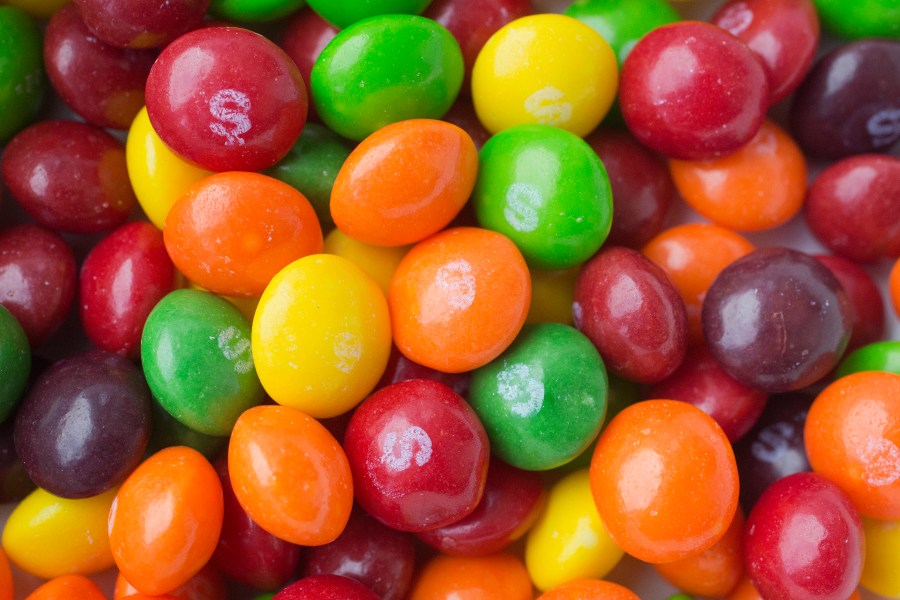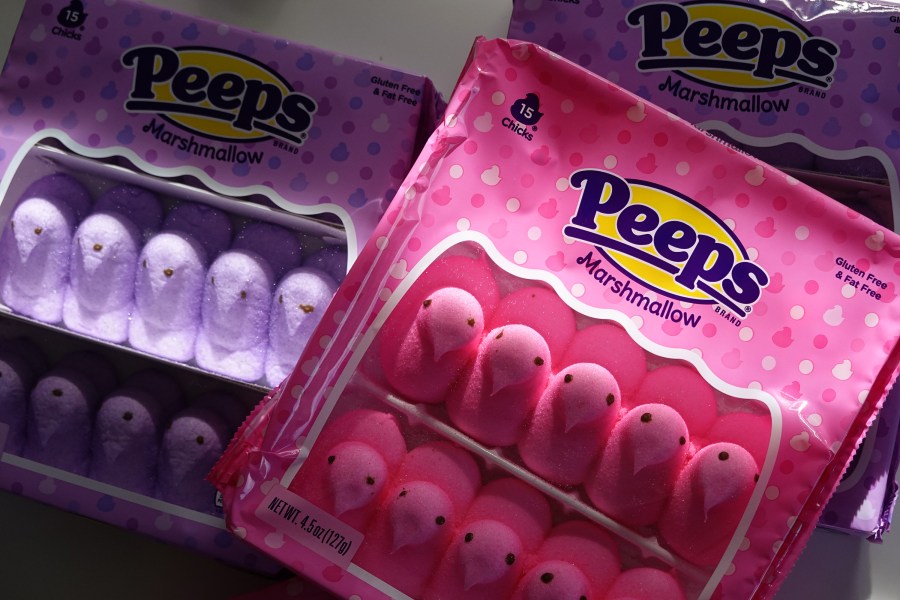Assemblymember Jesse Gabriel wants to make one thing clear: he loves Skittles. His favorite is the Wild Berry mix.
So why is Gabriel, one of California’s leading gun control advocates, now taking aim at one of his favorite treats? Because the Food and Drug Administration, he says, is failing to protect Americans.
“I just assumed there was someone in Washington, D.C. who was watching our backs, and when I learned that was not the case, it all came together for me,” he explained to KTLA.
Gabriel (D-Woodland Hills) is the author of Assembly Bill 418 which would prohibit the manufacture, sale, or distribution of products containing red dye No. 3, titanium dioxide, potassium bromate, brominated vegetable oil or propylparaben in California.
Those five additives are found in Skittles, Hot Tamales, Peeps, Dubble Bubble Twist Gum, and thousands of other food products.

All are banned in the European Union for being linked to health issues – among them an increased risk of cancer, reproductive harm, and behavioral problems among children, Gabriel says.
His goal is not to remove beloved food products from store shelves in California, he says, but to force companies to make minor adjustments that would benefit all U.S. consumers.
“The idea here is to get these manufacturers to do what they have already done in Europe, what they have already done in Canada, what they’ve already done in so many other countries around the world, which is just to make a very minor modification to their recipes. In most cases, it is changing out one ingredient for another.”
In 1990, the FDA banned red dye No. 3 from cosmetics after it was linked to cancer in animals. Gabriel sees that as clear evidence that the agency has been too slow to act.
“The FDA looked at red dye no. 3, looked at the research and the science, and said, ‘This is a carcinogen.’ Yet 33 years later, it’s still in our food supply, and it just kind of blows your mind.”
His bill passed overwhelmingly in the California State Assembly last month and is expected to pass in the Senate.
In March, trade groups representing the food and beverage industry sent a letter to legislative leadership in Sacramento voicing their opposition to AB 418.
“All five of these additives have been thoroughly reviewed by the federal and state systems and many international scientific bodies and continue to be deemed safe,” the letter read.
But in that same memo, the groups acknowledge ongoing reviews of the additives which, they say, should be allowed to run their course.
Gabriel insists the real story is not his bill, but rather the FDA bending for big business.
“There’s this loophole in the FDA approval process called GRAS, Generally Recognized as Safe, which is supposed to [streamline approval] for products containing common household ingredients like sugar and vinegar. And some very crafty lawyers for the industry have basically figured out a way to get 99% of the new chemicals to fall inside of that loophole so that they don’t get independently reviewed in any meaningful way by the FDA.”

The FDA disputes Gabriel’s assertion.
“The claim that these substances have not undergone FDA review is inaccurate,” an FDA official said in an email to TODAY.com. “According to U.S. law (Federal Food, Drug & Cosmetic Act), ingredients added to food must be safe under their intended conditions of use, and safety information must be available to establish a reasonable certainty of no harm before they are used in products on the market.”
Gabriel is fully aware of perceptions.
He knows some people will only see the headline of a proposed “Skittles Ban” and not grasp the goals of AB 418. He also knows many will view his bill as another example of government overreach from California’s progressive majority.
“They imagine me as some guy in sandals, eating granola, trying to take away people’s Skittles, but it is very far from that. I’m just a dad who wants to make sure that my kids are protected … This is not a ban on Skittles.”






















